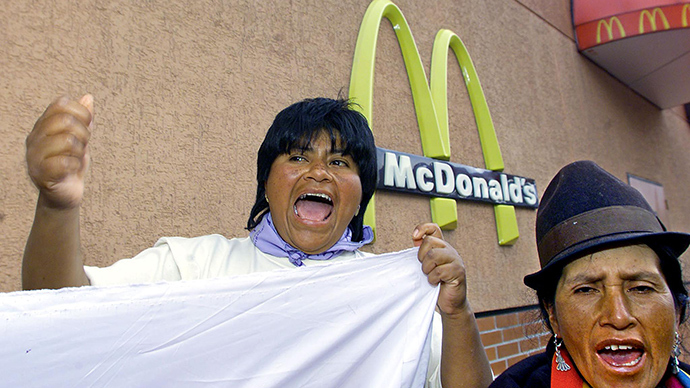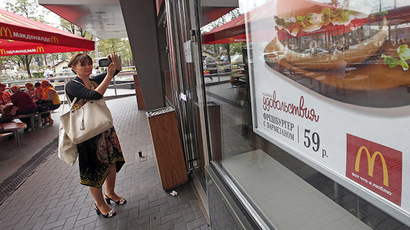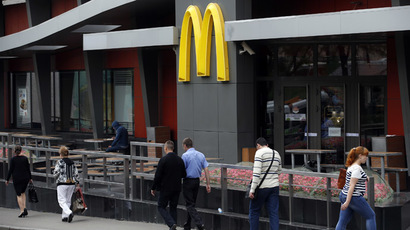‘Want to make yourself sick with McDonald’s? Pay more!’ Ecuador to introduce fast food tax

Ecuador’s leftist president Rafael Correa is taking on US-owned fast food chains in a bid to combat the escalating obesity problem in the country.
“We are moving past poverty-related problems since the
country is progressing a lot, and moving on to problems of
affluence. People are dying from bad food, not a lack of food.
People will stop eating so many McDonald’s and Burger King
hamburgers with the tax. This favors the production of our
traditional gastronomy,” said the politician, who has become
well known for his strident anti-American rhetoric since assuming
power in 2007.
“If you want to make yourself sick, that is your problem. We
are in a free country. But those who deliberately affect your
health, they should contribute a little more to the healthcare
system to help you once you are ill.”
Correa’s PAIS Alliance holds more than two-thirds of the seats in
the country’s legislative assembly, and while internet memes
bemoaning state interference in people’s diets have appeared on
the internet, the law is sure to be passed in the coming months.
Though the politician did not outline the severity of the
penalties, or who would be covered by the law, the target of his
ire was clear.
“We're talking about these big chains where meat is cooked in
pans of oil used over and over, which is a threat to public
health,” said Correa in his local radio address.

There is debate on the impact of the proposed measures.
The country of 15 million has just under 30 McDonald’s outlets
and 15 Burger Kings, mostly in urban areas, and the food is
relatively expensive, serving as a treat for the middle classes,
more than a mass fast food solution.
Yet, as Correa hinted, the tax is not likely to interfere with
the much more prevalent street and hole-in-the-wall cafes
affectionately known as chancrosas, or “syphilis
transmitters.” Thousands of these establishments offer food
that at first glance does not appear significantly different from
that of the chains – burgers, hot dogs and pizzas – for about $2,
several times less than the big chains.
Yet the scale of the problem is undisputed.
Ecuador suffers from what the World Bank, in its recent report,
called the “double burden” of malnutrition among both
the rural and poor population, and an emerging middle class that
is gorging itself on fatty foods, like it is living in times of
scarcity.
While the country has not yet entered the world’s top 10 most
obese nations – with the US still at the top of that ranking –
local health statistics indicate that nearly two-thirds of all
adults between 18 and 59 are overweight. Studies show that
indigenous populations of American countries, historically raised
on a more austere diet, are genetically more prone to putting on
weight, further complicating the government’s policy choices.

As well as the more populist measures, Correa has also introduced
a traffic light system – labeling foods as either green and
healthy, yellow, or red, and potentially harmful. The system,
touted in recent years by food scientists around the world, is
not likely to have a measurable effect for years to come.
On the whole, attempts to regulate food choices in middle and
upper-income countries have enjoyed limited success.
Denmark’s revolutionary tax on fatty foods, both in shops and
restaurants, imposed in 2011, became unpopular, and was quickly
abolished after complaints about its economic impact, as well as
lack of effectiveness.
Mexico, the world’s second fattest country, implemented a 1 peso
(7.5 cent) per liter tax on sugary drinks this year. Other
overweight Latin American states, such as Chile and Brazil, are
considering similar measures, and will be watching the Ecuadorian
experience with interest.
The extensive Global Burden of Disease Study, published earlier
this year, showed that the percentage of adults who are
overweight rose 28.8 percent between 1980 and 2013. More than 2
billion people worldwide can currently be classed as overweight














